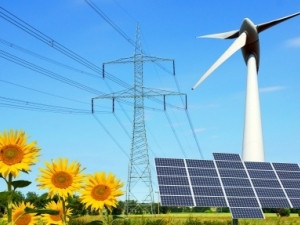
There are some concerns that need to be addressed before SA's draft Integrated Energy Plan (IEP) and Integrated Resource Plan (IRP) see the light.
This is according to the South African Renewable Energy Council (SAREC), which says although it has welcomed the 2016 update of the IEP and IRP, it is advocating that the public participation process address a number of concerns that the industry has raised.
On 2 November, Cabinet approved the publication of the IEP and IRP for public comment and engagement. The purpose of these plans is to provide a roadmap of the future energy landscape for SA which guides future energy infrastructure investments and policy development.
Industry has met the long-awaited IEP and IRP with mixed reactions since they were published by the Department of Energy.
SAREC, the umbrella body that represents the interests of the solar and wind industries, has come out in cautious support of the recently released 2016 update of the IEP and IRP, which for the first time since 2010, allows all stakeholders to participate in an informed debate on the choices and timings of the technology choices that will enable the delivery of affordable and sustainable energy to SA.
"In terms of the Department of Energy's activity plan, such debate should culminate in the promulgation of a final IRP shortly after March 2017," says Brenda Martin, chair of the SAREC.
The organisation says it acknowledges wind and solar PV technologies will continue to play a significant role in the country's future energy path.
However, the industry body intends to encourage broad stakeholder groups to make use of the opportunity and process available to address certain issues.
An example of this, Martin explains: "It isn't clear as to why constraints imposed on renewable technologies in the IRP 2010 are continuing to be maintained in the 2016 update, considering that the track record of renewable power prices awarded in rounds one to rounds four of REIPPP, illustrates a clear decline, even faster than those anticipated back in 2010."
Other questions that SAREC would like to be processed through the public participation include whether rational planning and resulting investment choices have been made on the basis of 'least cost'.
It also seeks to find out whether all opportunities to achieve both energy and developmental objectives are being utilised. The enviable record of deployment and delivery of socio-economic benefits means larger allocations of technologies aligned with the achievement of South Africa's development agenda should be considered, says SAREC.
The organisation also questions why the wind and solar PV prices used in the IRP base case scenario are at variance to real prices being awarded to preferred bidders in round four of the REIPPP.
Another bone to chew is the absence of concentrated solar power technology in the IRP base case scenario without any clear explanation.
Finally, SAREC says the IRP 2016 assumes all determinations gazetted by the minister of energy to-date should proceed as planned over the next four years.
"SAREC would, thus, like to urgently insist that the Department of Energy ensures due process with the financial close of the round four and small IPP preferred bidder projects and the announcement of expedited round preferred bidders."
Share